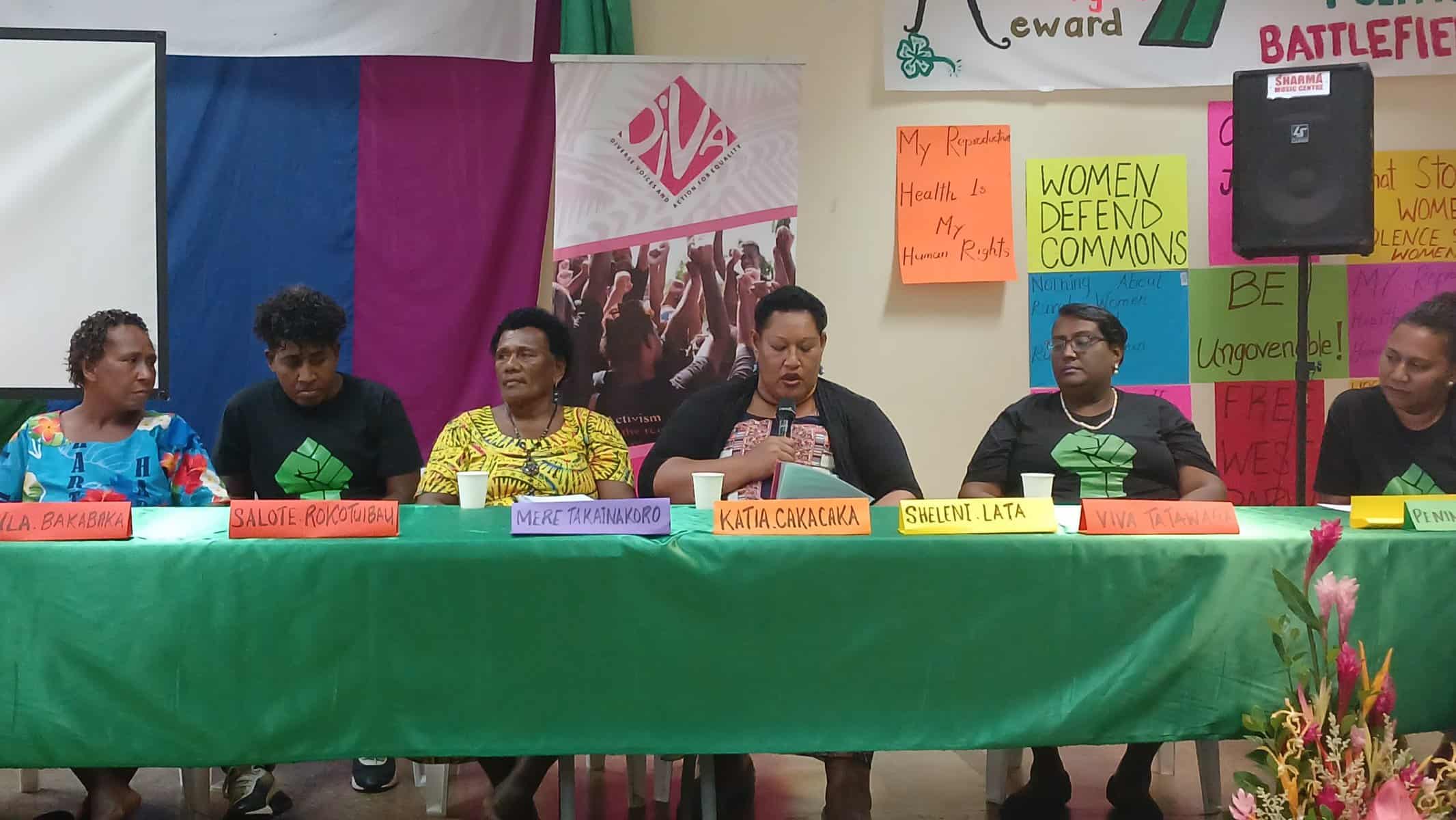Many tears and heartfelt stories were shared in Suva this week at the launch of a new booklet that highlights the socio-economic challenges that Fijian women, girls, and gender-diverse people face on a daily basis.
Curated by the DIVA for Equality’s People to Power Network, the booklet includes stories by twenty-three individuals and “unveils the harsh reality of gender discrimination from early life to old age, and of intergenerational poverty that has a profound impact on all aspects of life”.
The booklet notes Oceania has the second-highest rate (34.3%) of female poverty after sub-Saharan Africa (41.2%), according to recent statistics released by the United Nations Development Programme, UN Women, and the Pardee Center for International Futures.
“We’re very good at saying there’s no poverty in the Pacific,” Noelene Nabulivou, Executive Director of DIVA for Equality, said in response to the data. “In our network, we know that almost everyone is under-resourced or not got the decent work that they require or they’re under-employed,” she added.
Naomi Lasere, 60, is one of the contributors of the booklet. She believes there has been little change in the status of women since her youth in the late 1980s, as women are still dependent on their partners for their income.
“When women are left [by their partners], they are helpless, [especially] when they have children. [Some] of us are not educated, and we don’t know how to look after ourselves,” said Lasere.
Lasere says she would go fishing, make food parcels, and try to sell them in Nadi. “But then I’m chased away by the town council because they said I had to have a permit [to sell]. So I’m pushed back, and have to learn how to stand on my feet again,” she said. “Then, I’m told to go to the social welfare department because I’m a single mom. I went there and I still haven’t received [anything]. I think it’s been 35 years now. I look back, and realise that I’m still dependent, and I’ve got to do something,” she added.
Lasere hopes the government can provide a space in every town across Fiji “where ladies like us can bring our own things to sell for free so we can build up our income, and to survive”.
Nabulivou says the wonderful part about creating the booklet is that “they are told in women’s voices, in their own voices. And there’s very minimal editing, if at all, in them.”
“We’re saying to each other, as women and as people, that in order to make things really about no one [being] left behind, we have to look behind us and also say, am I part of the problem? Am I not providing support in my own area of work? Am I maybe leaving out people who really need urgent support and lifelong support to change the systems as well?
“The government already says that there are issues to do with water and sanitation, to do with housing, to do with adequate issues around violence and what we need to do now is to work out what we are going to do about it,” she added.
Nabulivou says the booklet will be presented to Governments and social movements next month at the 68th Commission on the Status of Women (CSW68) in New York.
“When we’re thinking about poverty, it’s also about what’s our connection to what the US is doing, what’s our connection to what Australia is doing, what are all these forces, the geopolitical forces that have an impact on a woman’s life,” she told Islands Business.
She highlights Fiji’s levels of debt as having risen from 40% to over 80%.
“Imagine when the government’s making decisions now, they’re making decisions to repay the debt. They’re not putting as much money into education, into training, into social welfare, that’s what we call austerity measures. How can we deal with poverty at our level if the money is being diverted into other so-called economic factors, and maybe is pushing us towards export-oriented sets of work when really what we should be doing first is protecting our people.
“When we go to CSW68, we’re not just interested in what’s the language in the UN. We’re interested in feminists who are working on it at a ground level. What is it that we bring that maybe other groups don’t bring? They bring their own, but we bring our knowledge from the streets and from the communities.
“You should not just be talking up here. You should be listening to those of us who are doing the work on the ground. So that’s our right, like for us, that makes sense in the work that we do,” she added.
